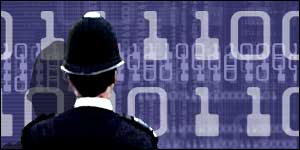The Home Office is considering plans to develop a centralized surveillance system to track in real time every kind of electronic activity undertaken by all citizens. The project is being driven by the intelligence services and has not yet been discussed by ministers. The surveillance would include a database recording a profile of web activity, emails, and phone taps for every citizen in the UK.
The plans reveal that the intelligence services would like to build a profile of every citizen’s network of contacts and relationships. The database would also store web pages visited, subject matter, and the length of time the citizen viewed the web page. This would be made possible by installing black boxes known as “network probes” across the current communications infrastructure, which would decrypt then interrogate all data traffic before passing it on for storage against the relevant citizen’s profile. Such a technology is not yet in existence; the monetary cost to society to pay for our privacy to be infringed is expected by to be “eye-popping” as quoted by a leading industry specialist.
Currently ISPs record a limited amount of information of users internet activity. This is for a specific period of time (six years), and the data can be handed over if the ISP are served a notice under the Investigatory Powers Act. The new database would not require such a notice to be obtained, so would require destroying the already weak legislation to protect citizen’s privacy. This change of legislation is expected in the proposal of the boringly titled Communication Data Bill, expected to be hidden somewhere in the queen’s speech this November.
The Home Office has said the proposals are an “essential step in the fight against terrorism”. They fail to mention that it would also be an essential step in profiling and intimidating people fighting for social change, and a powerful tool in their ongoing project to stifle political dissent.

Comments
Display the following 4 comments